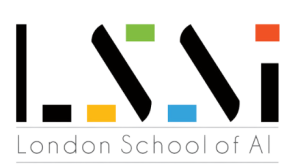DevOps Engineer
★★★★★ 5/5
Career Path program
Welcome to this engaging learning experience to help you become an expert DevOps Engineer. In this course, you will learn the cutting-edge technologies of software development and operations convergence. As technology advances the demand for skilled DevOps Engineers has skyrocketed.

New Session Starting:
1st of Dec 2023.
Program Duration:
3 months. 4-8 hrs/week.
Learning Format:
On-site Classes.
Course Overview
This course is designed to provide students with a comprehensive understanding of Artificial Intelligence and the necessary skills to be an expert DevOps Engineer. You will acquire technical proficiency in installing, administering, and monitoring cloud applications through this DevOps Engineer course. You will learn to review deployment strategies, CI/CD pipelines, observability, and use DevOps tools like Git, Docker, & Jenkins.
Key Elements:
- In-depth coverage of the tools involved.
- Practical exercises and real-world examples.
- Comprehensive learning resources, including tutorials, case studies, and reference materials.
- Hands-on experience with the latest technologies.
- Guidance from experienced instructors and industry experts.
- Interactive discussions and peer collaboration.
Relevant Courses
Hi, Welcome back!
For further inquiry & details:
Learning Path
DevOps Training: Learning the Basics
With the help of this module, you will get ready for a job in DevOps, a rapidly expanding industry that connects software developers and operations specialists. With this module, you will master the DevOps processes and technologies to succeed in your upcoming DevOps practitioner position.
DCA (Docker Certified Association): Learning Core Docker Concepts
The Docker Certified Associate (DCA) examination goes hand in hand with this practical training for the Docker certification. In this module, you will learn about the fundamental technologies of Docker, including Docker Hub, Docker Compose, Docker Swarm, Docker File, Docker Containers, Docker Engine, Docker Images, Docker Network, Docker Daemon, and Docker Storage.
Kubernetes Container Orchestration
Kubernetes is one of the most popular container orchestration tools available. You will better understand the fundamental abilities, tools, and ideas that a Kubernetes administrator needs to be aware of with the help of this module. You will learn about Docker orchestration, Kubernetes deployment, networking and storage, implementation and clustering.
Learning Path
Introduction to Full-Stack Development - MERN Stack
Getting started with full-stack development with the introduction of the course, and exploring course modules in detail.
Develop interactive Front-End with React
Learn all the basic and advanced concepts of front-end development including the major front-end development platforms like HTML, CSS, Javascript, and React.js Frameworks.
Fully functional Back-End with RESTFul and MongoDB
Learn all the basic and advanced concepts of back-end development including the major back-end development platforms like Node.js, Databases, RESTFul API and MongoDB.
Full-Stack Development - Merging Front-End and Back-End
Now, you will move towards the integration of the front-end and back-end and scaling them to make your website interactive and user-friendly.
Final Project - Automated Deployment Pipeline for Microservices using Docker and Kubernetes
The objective of this project is to evaluate your proficiency in implementing an automated deployment pipeline for a microservices-based application using Docker and Kubernetes. You will demonstrate your understanding of DevOps principles, Docker containerisation, and Kubernetes orchestration to streamline the deployment process and enhance the scalability, resilience, and maintainability of the application. In this project, you will design and implement an end-to-end deployment pipeline for a complex microservices architecture.
Cloud Architect Certification Advantages
To distinguish your profile as an AI Engineer, this thorough curriculum covers more than 8 software development tools and technologies.
With this programme, you will:
- Learn fundamental concepts of DCA and Kubernetes from recognised experts in the field, with information relevant to the industry.
- Implement the concepts of Kubernetes and DCA in a real-world project.
- Earn a course completion diploma that is recognised by the industry.

Skills Covered
- Understanding of DevOps principles.
-
Containerisation
with Docker.
-
Kubernetes
Orchestration.
-
Continuous
Deployment.
-
Infrastructure
as Code.
-
Cloud
technologies.
- Scripting and Automation.
- Configuration management.
Tools Covered





Industry Trends
According to LinkedIn’s Emerging Jobs of 2023 research, DevOps Engineer topped the list. Agile and DevOps are assisting organisations in improving Returns on Investment (ROI), decreasing the time to market for their products, and increasing efficiency. DevOps practises and tools are being more widely adopted by businesses, making DevOps engineering a highly sought-after position.
Cloud Architect
Industry Growth
22% Annual Growth
For DevOps Jobs from 2023 to 2033
0.3 Million New Jobs
For the field of DevOps jobs, there is a promising outlook from 2022 to 2031
Cloud Architect
Annual Salary
Minimum
£51,063
Average
£108,508
Maximum
£182,549
Our Requirements
This DevOps Engineer career path program is suitable for individuals who are interested in the convergence of software development and operations. It is ideal for software developers, system administrators, network engineers, release engineers, quality assurance/test engineers, operations/IT professionals, project managers, graduates, students, and professionals seeking a career transition.
- Basic programming skills.
- Version control systems.
- Networking basics.
- Cloud computing.
- Software development lifecycle.
- Familiarity with agile methodologies.


